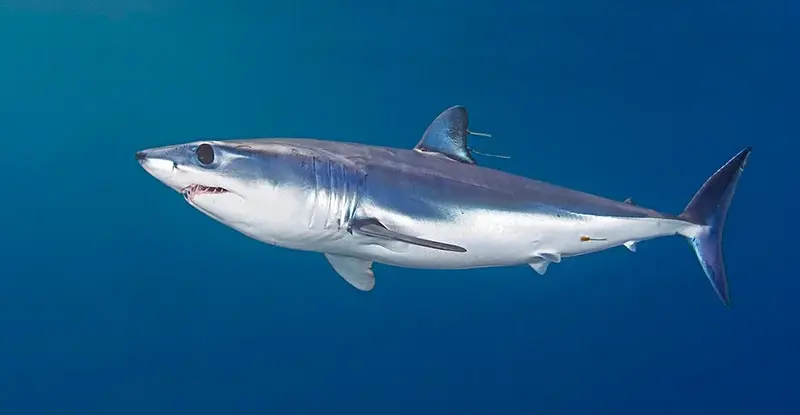Man pollutes the surrounding nature, especially water, in many ways. Industrial waste and tons of plastic waste enter the oceans. All this can poison the life of marine animals, especially rare ones such as sharks. Drugs, especially cocaine, can be called one of the poorly studied toxic sources. Previously, it was assumed that this substance was accidentally consumed by sharks, but now Brazilian biologists have found direct evidence.
“Cocaine sharks” have been troubling ecologists for several years. Recently, Florida waters were identified as a potential area where the sharks could come into contact with cocaine, an area where drug shipments often pass through. Sometimes, powder packets are found on beaches, so it’s possible that they could have been damaged by ocean churning, allowing an unknown amount of cocaine to be released into the water.
Scientists know how zebrafish respond to cocaine stimulation. In 2016, Swiss biologists discovered that the drug does not make the fish run at breakneck speed, contrary to assumptions, but accumulates in the eyes in doses lethal to humans and suppresses the animal’s movements.
It is not yet known how sharks might respond to drugs ingested into their bodies. Several divers reported strange movements by marine predators: a hammerhead shark rolling sideways in a manner unusual for its streamlined body, another sandbar shark swimming in circles as if fixed on an object. However, since no direct evidence is available, these observations cannot be attributed to the effects of cocaine.
Recently, a group of biologists discovered high concentrations of cocaine and benzoylecgonine (BE, the drug’s primary metabolite) in the bodies of wild Brazilian longfin sharks for the first time. Rhizoprionodon lalandii . This is alarming because high levels of cocaine in the water poison mollusks, crustaceans and fish. Seafood is becoming toxic due to the war.
Add to that the fact that a third of shark and dogfish species are vulnerable or at risk of extinction, and drug pollution in the waters could worsen already serious environmental problems. The new paper by Brazilian scientists has been published in the journal Total Environmental Science.
In total, the researchers examined 13 sharks, three males and ten females (five of them pregnant), caught off the coast of Rio de Janeiro state. After measuring length, weight and other parameters, the experts opened the fish’s bodies for muscle tissue and liver analysis.
To determine the concentration of cocaine and its metabolite, solid-liquid extraction was performed using ultrasound; samples were mixed with active ingredients, centrifuged, sonicated, frozen and evaporated. The resulting extract was analyzed using liquid chromatography.
All liver and muscle samples tested positive for cocaine, but one shark failed to detect benzoylecgonine. On average, there was three times more drug than metabolite, with peak values of 10.75 and 1.87 micrograms per kilogram, respectively.
Females showed higher cocaine concentrations in muscle tissue (2.62 ± 3.03 micrograms per kilogram) and were three times higher in pregnant females (6.8 ± 4.2 micrograms per kilogram), while the mean BE level was the same in all. As the researchers emphasize, the concentrations detected appeared to be higher than in other free-living marine organisms.
The level of benzoylecgonine in the liver was positively correlated with the weight of the animal, indicating that the substance accumulates in heavier individuals. No such correlation was found with cocaine – this can be interpreted as a detrimental effect of the substance on the growth of the body. The drug accumulates in the liver and affects fertility, as it affects vitellogenesis, the formation of the yolk sac during the development of the egg.
There are many reasons why sharks might take a dose of cocaine. The metabolite is likely to be washed into rivers flowing into coastal areas with sewage, and these areas are often home to long-finned sharks, making them prone to this type of pollution.
The authors of the article also noted the effect of cocaine on pregnant fish, as transportation requires a lot of metabolic resources from females, which puts them in a difficult situation. There is also the possibility that the drug passes into the embryo, but it is not yet clear what the consequences of this may be. The risk of poisoning continues for humans, as Brazilians often eat sharks.
Source: Port Altele
